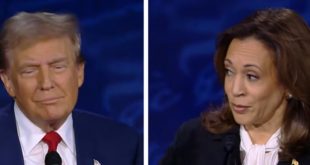
Although he came in as a ‘savior,’ Amin became even more brutal than Obote. He grew to be loathed, not only by Ugandans but by the international community. The country in 1972 witnessed Amin’s expulsion of Ugandans of Asian-origin who were the descendants of Indians and Pakistanis. Many had come as traders and builders of the Uganda Railway which reached Kampala from Mombasa in 1929. Amin declared an “economic war to put the economy in the hands of the African people of Uganda”.
The anger against Amin rose to its peak in 1976 when he allowed fighters of the Palestinian Liberation Organisation (PLO) to fly a plane-load with Israelis to Entebbe International Airport.
This act forced Israel to stage the most daring hostage rescue operation the world has ever witnessed on July 04, 1976. From that point on, Amin’s days in power became numbered. He was eventually ousted on April 11, 1979 by a joint force of the Tanzanian army (TPDF) and forces of Ugandans in exile then. Amin had joined the British King’s African Rifles in 1946.
After the ouster of Amin, anarchy continued in Uganda.
Trouble after Amin
The Uganda National Liberation Front/Army (UNLF/UNLA) installed Prof. Y.K. Lule as President but he led Uganda for 68 days only and he was removed by the National Consultative Council (NCC), which the UNLF/UNLA had setup to govern the country. He was replaced by Godfrey Lukongwa Binaisa, QC, who ruled for one year.
Again, the country witnessed the restoration of political parties by President Binaisa in April 1980.
Binaisa unfortunately made a political blunder when he tried to remove Brig. David Oyite Ojok from the post of Army Commander of UNLA. He was removed forthwith and suddenly new leadership emerged.
Three leaders within the UNLF/UNLA – Paul Muwanga, Yoweri Museveni and Brig. Oyite Ojok – took over the leadership of Uganda. They formed a `Military Commission,’ which ruled Uganda until December 12, 1980.
Paul Muwanga was the chairman of the Military Commission, Yoweri Museveni was his Deputy while Oyite Ojok was the Army Commander of UNLA.
Obote returned from exile in Tanzania on May 17, 1980.
Prof. Y.K. Lule, who was living in Nairobi at the time, tried to come back also and the Baganda in Kampala and in Nairobi formed the `Return Lule Committee’ under the Chairmanship of the late Prof. William Senteza Kajubi. The late Dr. Sulaiman Kiggundu and the late Alphose Ntale were members of the committee while the Secretary of the Committee was yours truly, Kavuma Kaggwa.
They planned that Prof. Lule should come back on June 17, 1980 so as to take part in the December 1980 General Elections as the Democratic Party flag-bearer because of the popularity he had acquired when he was President after Amin.
But Paul Muwanga blocked his return. Although, Lule remained in Nairobi, he maintained secret communications with Paul Kavuma, the former Katikiro of Buganda, who was the de facto Buganda leader at that time in the absence of the Kabaka. Paul Kavuma was with the late Prince Badru Kakungulu of Kibuli and the late Bishop Yokana Mukasa formerly of Mityana. These three men were secretly directing political activities in Buganda.
Paul Kavuma had earlier on in April 1980 at a DP meeting which was called to revive the Democratic Party at Rubaga Social Centre, ordered all the Baganda to join the Democratic Party. That order was very effective in Buganda and that was is what led DP to winning all parliamentary seats in Buganda the 1980 general elections. It is also said that DP won the national vote with 75 seats out of 108. The total number of members of Uganda’s National Assembly at that time was 108.
At the time of 1980 general elections, Uganda had two major political parties – the Democratic Party under the leadership of Paul Ssemogerere and Uganda Peoples’ Congress under the leadership of Milton Obote. There was also Museveni’s small Uganda Patriotic Movement (UPM). The country had waited for 18 long years from 1966 for the December 10, 1980 election.
It is, however, claimed that Paul Muwanga as the Chairman of the Military Commission, was faced with a problem of declaring DP as the winner. When the results were known, Paul Ssemogerere and the late Everesto Nyanzi went to meet Paul Muwanga at his office at the Parliamentary Building. At this meeting, Paul Ssemogerere demanded that he must swear in as President of Uganda because his party had won overwhelmingly.
 The Independent Uganda: You get the Truth we Pay the Price
The Independent Uganda: You get the Truth we Pay the Price



Since 1966- up today there is no peacefully hand over of power to another person alot of election reging.